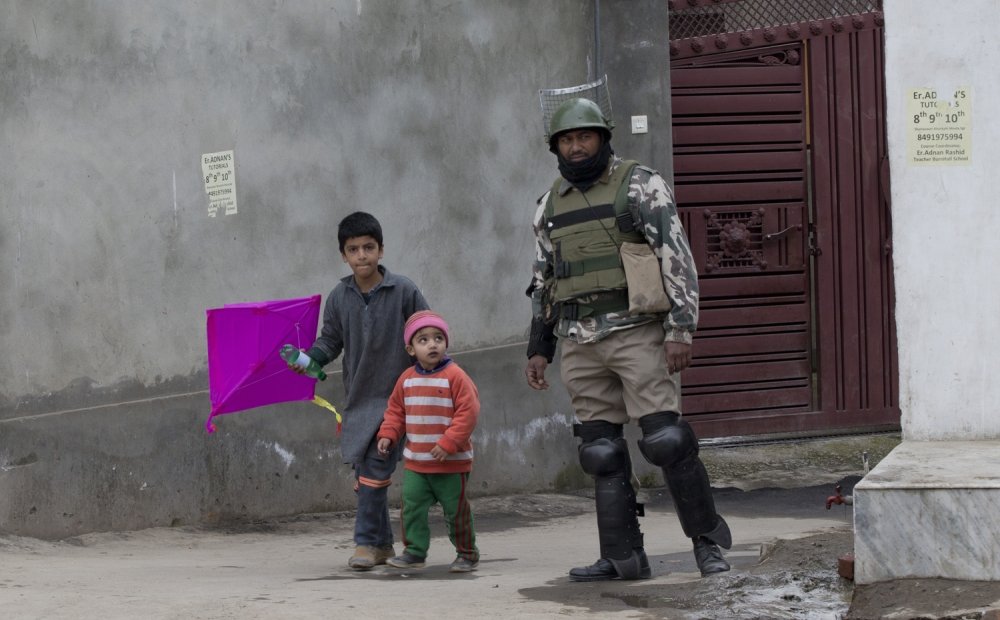Ground Truth Briefing | The India-Pakistan Crisis: What Next?

India and Pakistan have experienced their most serious crisis in nearly 20 years. After a Pakistan-based terror group staged an attack in India-administered Kashmir that killed more than 40 Indian security personnel, India retaliated by staging air strikes in Pakistan and Pakistan responded with its own strike on Indian targets. Pakistan also captured an Indian air force pilot. While Islamabad’s decision to release the pilot may offer a path toward deescalation, the mood remains tense for the nuclear-armed rivals.
This Ground Truth Briefing examined the implications of the crisis, what it means for regional stability, and what role (if any) should be played by the United States moving forward.
Selected Quotes
Aaron David Miller
“I get the familiar feeling of 'wash, rinse, and repeat,' and I look at this current crisis – that after the most recent escalation, and thankfully, de-escalation, which came rather quickly, none of the issues that have triggered this recent round are likely to have been resolved. In fact, there may have been a new risk-readiness on the escalatory cycle on this one. It may augur ill for the future.”
“I am reminded of Henry Kissinger’s famous quip about the Israelis – that they have no foreign policy, only domestic politics – and I am inclined to believe that on Kashmir, that may well pertain to both India and Pakistan as well.”
Her Excellency Nirupama Rao
“As far as my understanding and my experience of the Indian establishment and the way we work in the country I can say that there is 0% chance of miscalculation.”
“There is an absence of political support, I must say, for dialogue with Pakistan in the main, although that does not signify that every Indian is for war with Pakistan. In this scenario, India is seen as the victim, the injured party, having been for too long at the receiving end of terror attacks always traced back to having originated on Pakistani territory. No government in India can go against this tide of popular opinion that is also fanned by a nationalistic media and by the fact that we Indians are a talking, argumentative democracy, with views that are loudly expressed with considerable passion and feeling.”
His Excellency Salman Bashir
"We believe that a peaceful resolution of the Jammu-Kashmir dispute that meets the aspirations of the Kashmiri people is something we should aim for.”
“We also agree that the use of force can only aggravate the situation. We both, Pakistan and India, need to show the greater majority that great degree of responsibility. However, I think there is a sense in Pakistan that our desire for peace must not be misconstrued as weakness.”
“I also think it is very important to avoid grave policy errors based on misconceived notions of one-upmanship. I think this is an aspect that is perhaps valuable. There is a sense here that India is trying to demonstrate full spectrum dominance over Pakistan by invoking article 51 in terms of its right to self defense. It is and it was in violation of the UN charter in its attack in Pakistani territory in Balakot. I think Pakistan is firmly against terrorism. We have been victims of terrorism ourselves, and we are again willing to cooperate with India on this issue.”
Michael Kugelman
“Very soon after the Indian strike on Pakistan, Pakistan responded with its own strike on India. And that was the point of the greatest tension in the crisis, that’s where, in my view, another Indian retaliation could’ve really led to a major escalation… It was at that point, when Pakistan suddenly decided to release this pilot, this Indian pilot that had been detained shortly before. And I would not be surprised the U.S. got involved at that point to urge that move.”
“Two quick points to make on this issue of deepening U.S.-India relationship. One, in the eyes of Pakistan, this may risk making the U.S. seem to be an undesirable mediator. There’s a belief that the U.S. is now really leaning a lot more toward India and away from Pakistan. Secondly, the United States may be inclined to take a more hands-off role in the dispute, in a big way … Second factor, that I would argue would guide the U.S. role in this India-Pakistan dispute, is that the U.S. really needs Pakistan’s cooperation in Afghanistan… For the U.S., particularly for President Trump, getting a deal in Afghanistan is the biggest U.S. goal in South Asia right now.”
“India has claimed that Pakistan used American F-16 jets when it launched its retaliatory strike in India. Now, we don’t know if this is true… This could pose some problems with the U.S.-Pakistan relationship given that U.S. weaponry provided to Pakistan in recent years was mainly expected to be used by Pakistan to fight domestic terror, not to be used against India.”
Introduction

Moderator

Panelists

Former Indian Foreign Secretary; Former Indian Ambassador to Washington and Beijing

Hosted By

Indo-Pacific Program
The Indo-Pacific Program promotes policy debate and intellectual discussions on US interests in the Asia-Pacific as well as political, economic, security, and social issues relating to the world’s most populous and economically dynamic region. Read more
